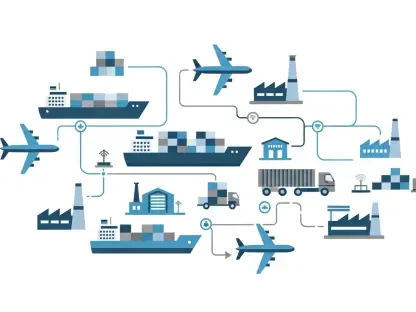Rohit Laila, a seasoned expert in logistics and supply chain management, has significantly impacted the pharmaceutical and healthcare sectors over his decades-long career. We sat down with him to gain insights into DHL Supply Chain’s new Pharma Hub in Singapore and its implications for the industry.
Can you provide an overview of the new Pharma Hub in Singapore and its main features?
The new Pharma Hub in Singapore is an 8,200 square meter facility designed for pharmaceutical logistics. It features specialized temperature-controlled zones, including ambient areas (15°C to 25°C) and cold rooms (2°C to 8°C), ensuring precise storage conditions for sensitive healthcare products. It is Good Manufacturing Practice (GMP) compliant and equipped with advanced cold chain infrastructure to maintain uninterrupted temperature stability throughout the logistics process.
What is the total investment DHL Group has committed to Asia Pacific for its Life Sciences and Healthcare (LSHC) infrastructure?
DHL Group has committed €500 million to bolster its Life Sciences and Healthcare (LSHC) infrastructure across Asia Pacific. This investment is part of a broader strategy to strengthen the healthcare supply chain in the region and meet the growing demand for transformative healthcare solutions.
How does the new Pharma Hub align with DHL Group’s Strategy 2030?
The new Pharma Hub is a key component of DHL Group’s Strategy 2030, particularly under the “DHL Health Logistics” sector brand, which aims to drive cross-divisional growth. This initiative reflects a broader commitment to supporting the healthcare sector with resilient and efficient supply chains, ensuring quicker and more reliable delivery of life-saving medicines and healthcare products.
How significant is the LSHC sector to DHL’s global revenue?
The Life Sciences and Healthcare (LSHC) sector currently contributes EUR 5 billion to DHL’s global revenue. This underscores the sector’s importance to the Group and its vital role in DHL’s growth strategy.
What are the main factors driving the growth of the LSHC sector in Asia Pacific?
The growth of the LSHC sector in Asia Pacific is primarily driven by increasing lifespans, personalized treatments, and rising consumer expectations. The region’s medical market is projected to reach USD 138 billion by 2030, reflecting the critical need for resilient and efficient supply chains to address these evolving healthcare demands.
How does DHL Supply Chain plan to meet the projected growth of the medical market in the region by 2030?
To meet the projected growth of the medical market, DHL Supply Chain is investing in advanced infrastructure and capabilities. This involves not only building warehouses but also enhancing the entire logistics network to enable faster, more reliable delivery of healthcare products and medicines, ensuring that the unique and complex needs of the healthcare sector are efficiently met.
Can you elaborate on the advanced cold chain infrastructure of the Pharma Hub?
The advanced cold chain infrastructure of the Pharma Hub includes airtight loading docks and dedicated anterooms. These features ensure uninterrupted temperature stability throughout the logistics process. Additionally, the facility is GMP compliant, which is crucial for handling sensitive healthcare products.
What are the key attributes of the temperature-controlled zones within the facility?
The temperature-controlled zones within the Pharma Hub include ambient areas maintained at 15°C to 25°C and cold rooms kept at 2°C to 8°C. These zones are designed to ensure precise storage conditions for sensitive healthcare products, adhering to strict regulatory and compliance standards.
How does the Pharma Hub ensure uninterrupted temperature stability throughout the logistics process?
To ensure uninterrupted temperature stability, the Pharma Hub features advanced infrastructure like airtight loading docks and dedicated anterooms which help in maintaining consistent temperatures during handling and transportation of sensitive products.
What value-added services are planned for the Pharma Hub in the future?
Future plans for the Pharma Hub include offering pharma-related value-added services such as redressing activities. These will further enhance the facility’s capability to provide comprehensive support to pharmaceutical partners.
How does the strategic location of the Pharma Hub in Jurong benefit its operations?
The strategic location of the Pharma Hub in Jurong, near Tuas Bio-Medical Park, provides seamless connectivity to Changi Airport and Tuas Mega Port. This facilitates efficient regional and global distribution, enhancing operational effectiveness for pharmaceutical logistics.
In what ways does the facility offer connectivity to Changi Airport and Tuas Mega Port?
The facility’s proximity to Changi Airport and Tuas Mega Port ensures timely and efficient transportation of healthcare products, enabling quick access to international shipping routes and enhancing the overall logistics process.
How does Singapore’s focus on becoming a global leader in life sciences and medtech align with DHL’s investments?
Singapore’s ambitions to become a global leader in life sciences and medtech innovation align perfectly with DHL’s investments in the region. The country’s substantial funding and initiatives to attract investments in life sciences create a supportive environment for DHL’s strategic developments.
Can you discuss any initiatives or research programs in Singapore that complement your operations?
Singapore’s National Research, Innovation and Enterprise (RIE) initiatives complement DHL’s operations by fostering a conducive environment for innovation and development in life sciences and medtech. These programs attract significant investments, helping to enhance the overall infrastructure and capabilities in the sector.
Besides the new Pharma Hub, what other LSHC operations does DHL run in Singapore?
In addition to the new Pharma Hub, DHL operates over 36,000 square meters of warehouse space in Singapore dedicated to LSHC operations. This includes regional distribution centers for multiple medical device multinational companies, clinical trials support, and other value-added services.
What are the critical factors for a successful LSHC supply chain according to DHL?
A successful LSHC supply chain requires robust warehouse infrastructure, skilled personnel, and innovative solutions. Together, these elements enable DHL to meet the unique demands of the healthcare industry and deliver exceptional value to its customers.
How does DHL ensure that it has the skilled personnel required for its LSHC operations?
DHL ensures it has skilled personnel by investing in continuous training and development programs. These programs are designed to keep the workforce updated with the latest industry standards and innovative solutions, ensuring high competency in managing the healthcare supply chain.
What innovative solutions does DHL employ to meet the unique demands of the healthcare industry?
DHL employs a range of innovative solutions such as advanced cold chain technologies, digital logistics platforms, and customized supply chain strategies. These innovations are tailored to meet the unique and stringent demands of the healthcare industry, ensuring efficiency and reliability.
Can you describe how DHL turns challenges into opportunities within the healthcare supply chain?
DHL turns challenges into opportunities by leveraging advanced technology, strategic planning, and a deep understanding of healthcare logistics. They transform complexities in the supply chain into efficient processes, ensuring seamless delivery and management of healthcare products.
In what ways does DHL’s approach to supply chain management enable their customers to focus on innovation and patient care?
DHL’s comprehensive approach to supply chain management takes on the logistical complexities, allowing their customers to focus on innovation and patient care. By ensuring efficient and reliable delivery systems, healthcare providers can dedicate more resources to developing transformative treatments and improving patient outcomes.
Do you have any advice for our readers?
Understanding the importance of a resilient and efficient supply chain is crucial in today’s world. Investing in advanced infrastructure and skilled personnel, while embracing innovation, can significantly enhance the capability to meet evolving healthcare needs and drive success in the industry.









